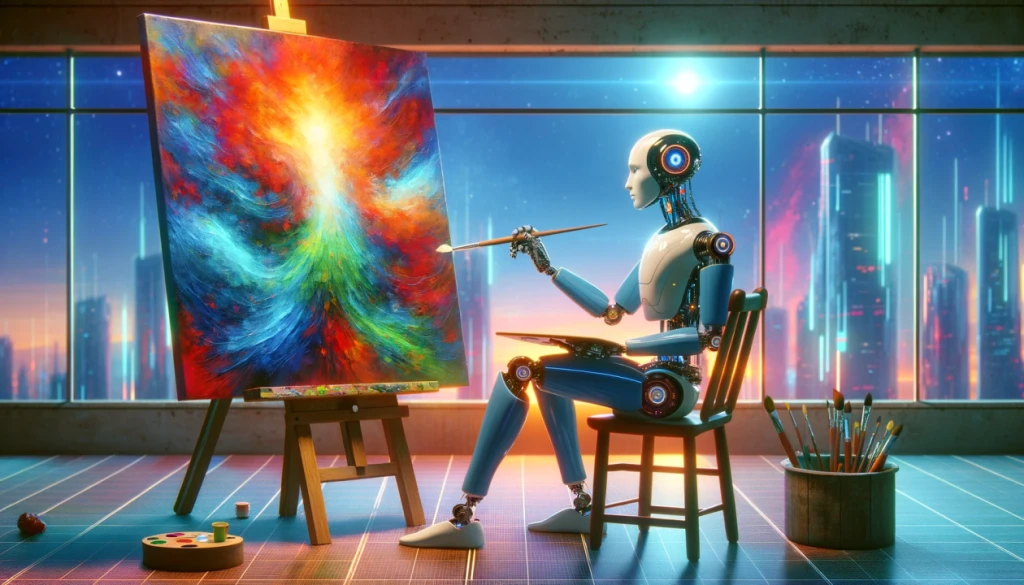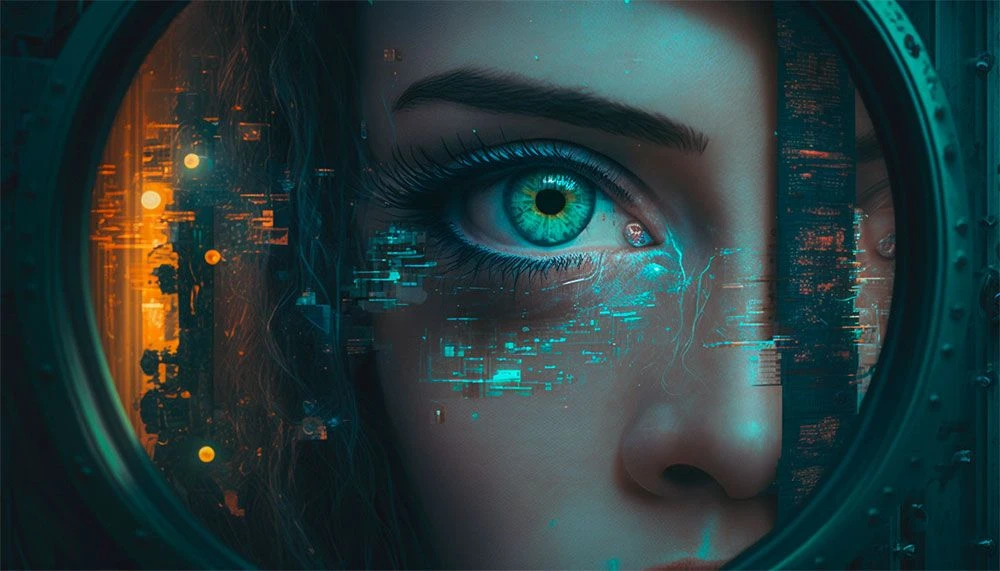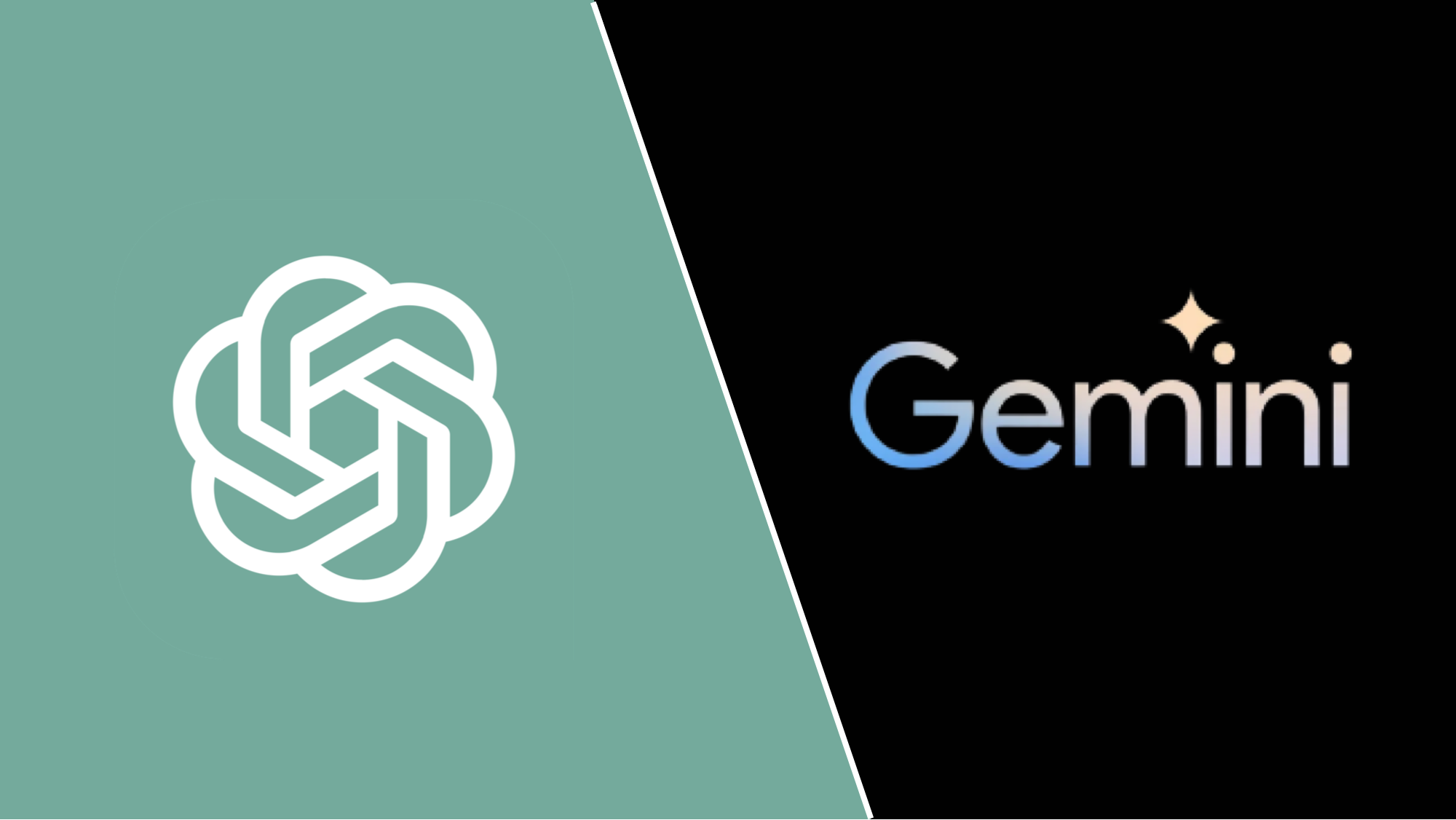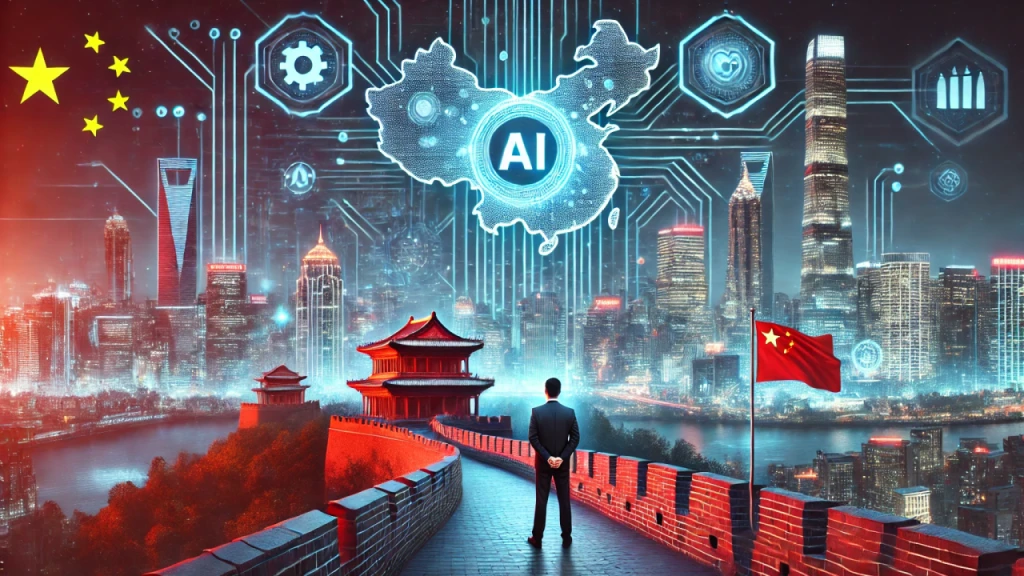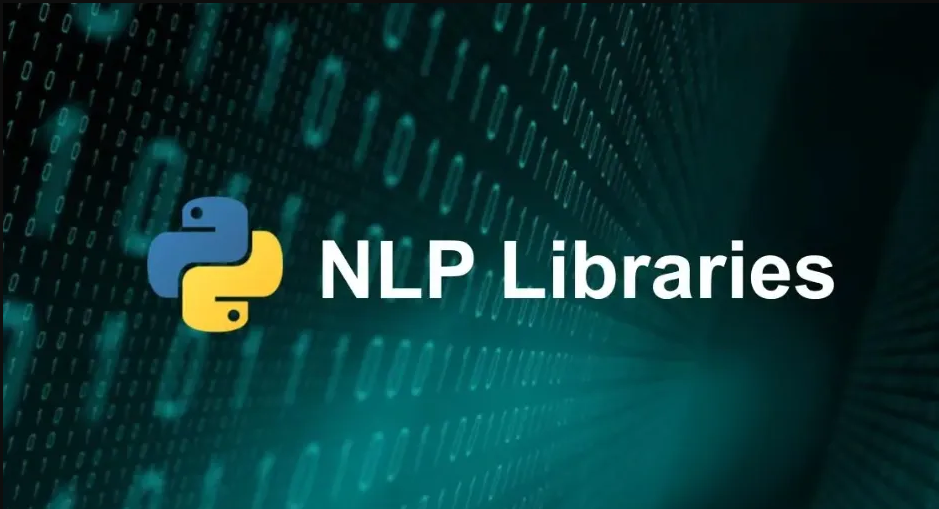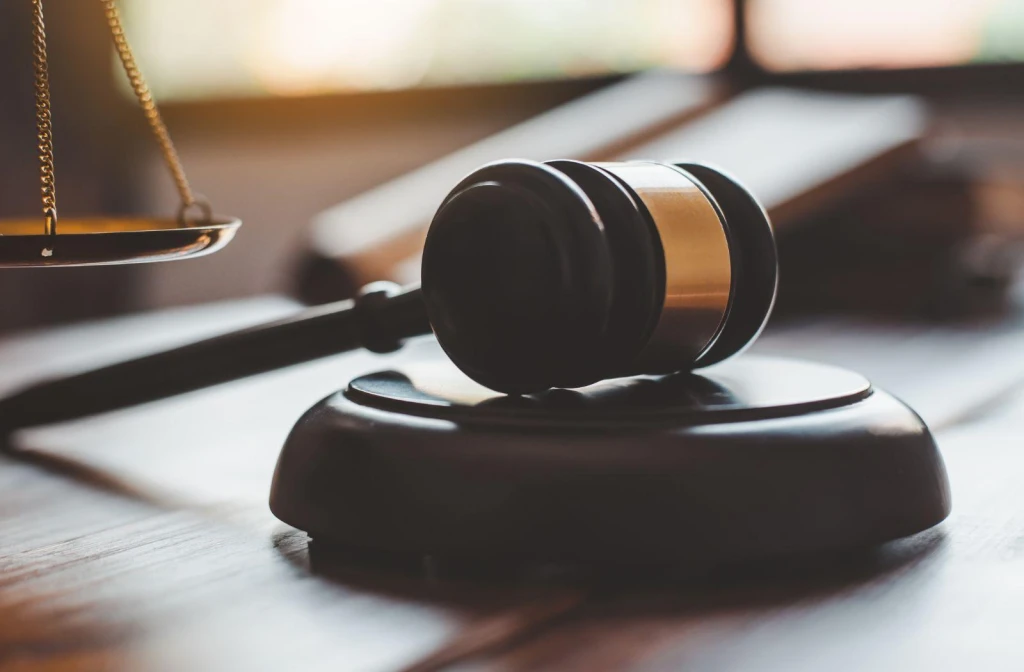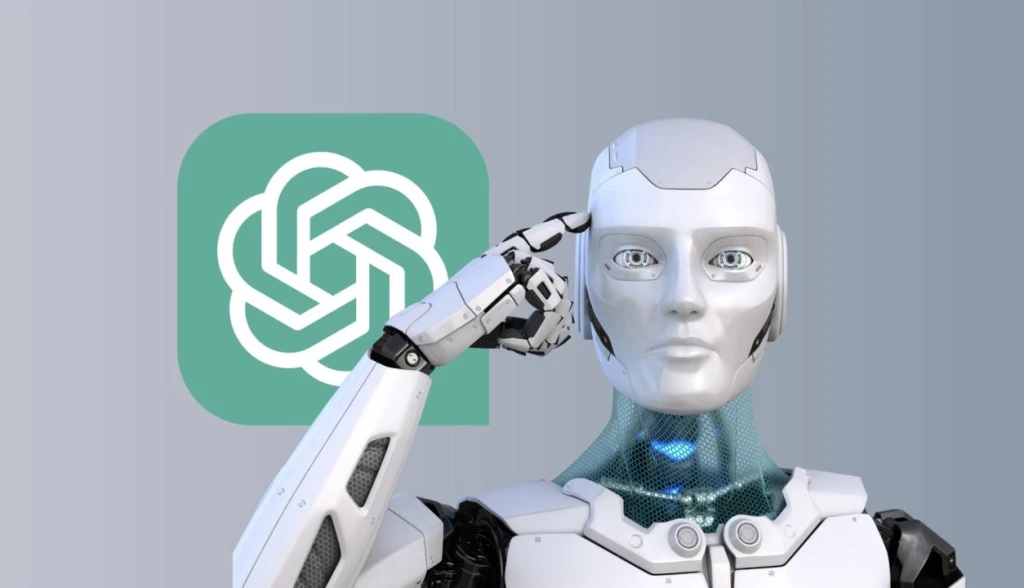Test AI on YOUR Website in 60 Seconds
See how our AI instantly analyzes your website and creates a personalized chatbot - without registration. Just enter your URL and watch it work!
1- Introduction: How AI is Changing the Creative World
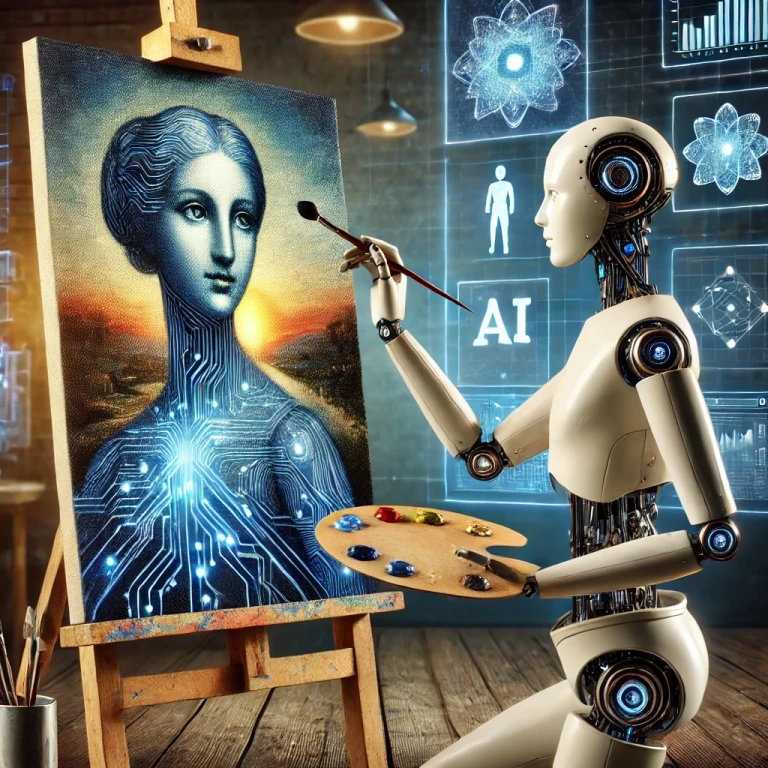
2- AI in Visual Arts: Generating Stunning Artwork
2.1- AI-Generated Paintings
AI models like Deep Dream and DALL·E create unique, surreal artworks based on human prompts.
Some AI-generated paintings have sold for thousands of dollars at auctions.
2.2- AI in Graphic Design & Illustration
Platforms like Adobe Firefly and Canva AI assist designers in generating visuals quickly.
AI simplifies design processes, enabling non-artists to create professional-quality artwork.
2.3- Ethical Questions in AI Art
Is AI-created art truly original, or is it a remix of existing works?
How should AI-generated content be credited in the art industry?
3- AI in Music: Composing and Producing Songs
3.1- AI-Generated Music Composition
AI tools like AIVA and OpenAI’s Jukebox compose original music based on various genres.
Film and video game industries use AI-generated scores to enhance storytelling.
3.2- AI in Music Production & Mixing
AI-powered software like LANDR and iZotope Ozone assists with mastering and sound mixing.
AI speeds up music production, allowing artists to focus on creativity rather than technical details.
3.3- Can AI Replace Human Musicians?
AI can compose music, but it lacks emotional depth and real-time improvisation.
Human creativity and emotion remain irreplaceable in musical expression.
4- AI in Writing: From Poetry to Storytelling
4.1- AI-Generated Content & Copywriting
AI tools like ChatGPT, Jasper, and Copy.ai assist in writing blogs, articles, and marketing copy.
Writers use AI for idea generation, proofreading, and enhancing their storytelling.
4.2- AI in Poetry & Fiction Writing
AI can generate poems and short stories in various literary styles.
Some AI-generated novels have even been published, sparking debates on authorship.
4.3- Ethical Concerns in AI Writing
Should AI-generated books have human co-authors?
Can AI-written content be considered truly "creative" without human intent?
5- AI in Film & Animation: Revolutionizing Visual Storytelling
5.1- AI in Screenwriting & Storyboarding
AI tools help screenwriters generate plot ideas and dialogue sequences.
Platforms like Runway AI assist filmmakers in creating visual concepts.
5.2- AI in Animation & CGI
AI automates animation, making character movements more fluid and realistic.
Deepfake technology enables digital actors, but raises ethical concerns about authenticity.
5.3- The Future of AI in Filmmaking
AI may assist directors but cannot replace human vision and artistic intuition.
Ethical concerns about AI-generated actors and digital clones remain a challenge.
6- The Debate: Can AI Be Truly Creative?
6.1- AI as a Tool vs. AI as an Artist AI enhances human creativity but lacks emotions and personal experiences.
Artists use AI as an extension of their imagination rather than a replacement.
6.2- The Role of Human Emotion in Art
Creativity is often driven by personal emotions, struggles, and experiences—things AI cannot replicate.
AI-generated art may be technically impressive, but does it hold the same meaning as human-created work?
6.3- The Future of AI and Human Collaboration
The ideal scenario is AI and humans working together to push creative boundaries.
AI should be seen as a creative assistant rather than an independent artist.
7- Conclusion: The New Era of Creativity
As technology continues to evolve, the question remains: Will AI ever develop true creativity, or will it always be a tool for human artists?
